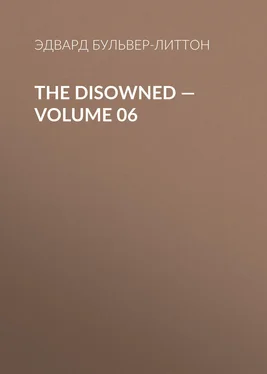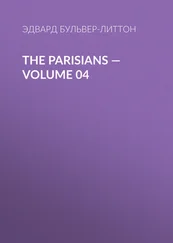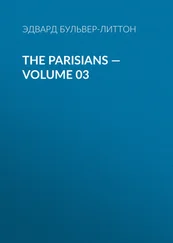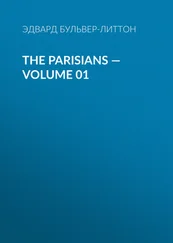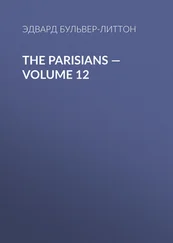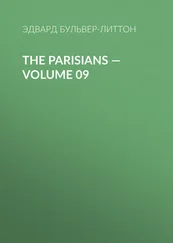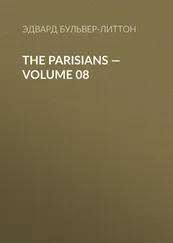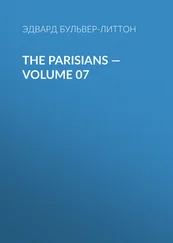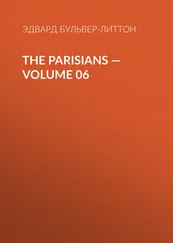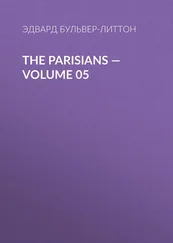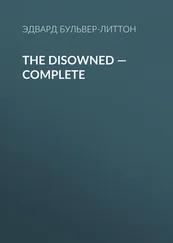Эдвард Бульвер-Литтон - The Disowned — Volume 06
Здесь есть возможность читать онлайн «Эдвард Бульвер-Литтон - The Disowned — Volume 06» — ознакомительный отрывок электронной книги совершенно бесплатно, а после прочтения отрывка купить полную версию. В некоторых случаях можно слушать аудио, скачать через торрент в формате fb2 и присутствует краткое содержание. Жанр: foreign_prose, literature_19, Европейская старинная литература, foreign_antique, на английском языке. Описание произведения, (предисловие) а так же отзывы посетителей доступны на портале библиотеки ЛибКат.
- Название:The Disowned — Volume 06
- Автор:
- Жанр:
- Год:неизвестен
- ISBN:нет данных
- Рейтинг книги:5 / 5. Голосов: 1
-
Избранное:Добавить в избранное
- Отзывы:
-
Ваша оценка:
- 100
- 1
- 2
- 3
- 4
- 5
The Disowned — Volume 06: краткое содержание, описание и аннотация
Предлагаем к чтению аннотацию, описание, краткое содержание или предисловие (зависит от того, что написал сам автор книги «The Disowned — Volume 06»). Если вы не нашли необходимую информацию о книге — напишите в комментариях, мы постараемся отыскать её.
The Disowned — Volume 06 — читать онлайн ознакомительный отрывок
Ниже представлен текст книги, разбитый по страницам. Система сохранения места последней прочитанной страницы, позволяет с удобством читать онлайн бесплатно книгу «The Disowned — Volume 06», без необходимости каждый раз заново искать на чём Вы остановились. Поставьте закладку, и сможете в любой момент перейти на страницу, на которой закончили чтение.
Интервал:
Закладка:
"Oh, sir!"
"Pray," said Mr. Merrylack, who like most of his tribe was a bit of a politician; "is it the Mr. Linden who made that long speech in the House the other day?"
"Precisely, sir. He is a very eloquent gentleman, indeed: pity he speaks so little; never made but that one long speech since he has been in the House, and a capital one it was too. You saw how the prime minister complimented him upon it. 'A speech,' said his lordship, 'which had united the graces of youthful genius with the sound calculations of matured experience."'
"Did the prime minister really so speak?" said Jeremiah "what a beautiful, and noble, and sensible compliment! I will examine my books when I go home,—'the graces of youthful genius with the sound calculations of matured experience'!"
"If he is in the Parliament House," quoth the landlady, "I suppose he will know our Mr. Mordaunt, when the squire takes his seat next—what do you call it—sessions?"
"Know Mr. Mordaunt!" said the valet. "It is to see him that we have come down here. We intended to have gone there to-night, but Master thought it too late, and I saw he was in a melancholy humour: we therefore resolved to come here; and so Master took one of the horses from the groom, whom we have left behind with the other, and came on alone. I take it, he must have been in this town before, for he described the inn so well.—Capital cheese this! as mild,—as mild as your sweet smile, miss."
"Oh, sir!"
"Pray, Mistress Merrylack," said Mr. Jeremiah Bossolton, depositing his pipe on the table, and awakening from a profound revery, in which for the last five minutes his senses had been buried, "pray, Mistress Merrylack, do you not call to your mind or your reminiscence or your— your recollection, a young gentleman, equally comely in his aspect and blandiloquent (ehem!) in his address, who had the misfortune to have his arm severely contused and afflicted by a violent kick from Mr. Mordaunt's horse, even in the yard in which your stables are situated, and who remained for two or three days in your house or tavern or hotel? I do remember that you were grievously perplexed because of his name, the initials of which only he gave or entrusted or communicated to you, until you did exam—"
"I remember," interrupted Miss Elizabeth, "I remember well,—a very beautiful young gentleman, who had a letter directed to be left here, addressed to him by the letters C. L., and who was afterwards kicked, and who admired your cap, Mother, and whose name was Clarence Linden. You remember it well enough, Mother, surely?"
"I think I do, Lizzy," said the landlady, slowly; for her memory, not so much occupied as her daughter's by beautiful young gentlemen, struggled slowly amidst dim ideas of the various travellers and visitors with whom her house had been honoured, before she came, at last, to the reminiscence of Clarence Linden, "I think I do; and Squire Mordaunt was very attentive to him; and he broke one of the panes of glass in No. 8 and gave me half a guinea to pay for it. I do remember perfectly, Lizzy. So that is the Mr. Linden now here?—only think!"
"I should not have known him, certainly," said Miss Elizabeth; "he is grown so much taller, and his hair looks quite dark now, and his face is much thinner than it was; but he's very handsome still; is he not, sir?" turning to the valet.
"Ah! ah! well enough," said Mr. Harrison, stretching out his right leg, and falling away a little to the left, in the manner adopted by the renowned Gil Blas, in his address to the fair Laura, "well enough; but he's a little too tall and thin, I think."
Mr. Harrison's faults in shape were certainly not those of being too tall and thin.
"Perhaps so!" said Miss Elizabeth, who scented the vanity by a kindred instinct, and had her own reasons for pampering it, "perhaps so!"
"But he is a great favourite with the ladies all the same; however, he only loves one lady. Ah, but I must not say who, though I know. However, she is so handsome: such eyes, they would go through you like a skewer; but not like yours,—yours, miss, which I vow and protest are as bright as a service of plate."
"Oh, sir!"
And amidst these graceful compliments the time slipped away, till Clarence's dinner and his valet's supper being fairly over, Mr. Harrison presented himself to his master, a perfectly different being in attendance to what he was in companionship: flippancy, impertinence, forwardness, all merged in the steady, sober, serious demeanour which characterize the respectful and well-bred domestic.
Clarence's orders were soon given. They were limited to the appurtenances of writing; and as soon as Harrison reappeared with his master's writing-desk, he was dismissed for the night.
Very slowly did Clarence settle himself to his task, and attempt to escape the ennui of his solitude, or the restlessness of thought feeding upon itself, by inditing the following epistle:—
I was very unfortunate, my dear Duke, to miss seeing you, when I called in Arlington Street the evening before last, for I had a great deal to say to you,—something upon public and a little upon private affairs. I will reserve the latter, since I only am the person concerned, for a future opportunity. With respect to the former— . . . . . . . . .
And now, having finished the political part of my letter, let me congratulate you most sincerely upon your approaching marriage with Miss Trevanion. I do not know her myself; but I remember that she was the bosom friend of Lady Flora Ardenne, whom I have often heard speak of her in the highest and most affectionate terms, so that I imagine her brother could not better atone to you for dishonestly carrying off the fair Julia some three years ago, than by giving you his sister in honourable and orthodox exchange,—the gold amour for the brazen.
As for my lot, though I ought not, at this moment, to dim yours by dwelling upon it, you know how long, how constantly, how ardently I have loved Lady Flora Ardenne; how, for her sake, I have refused opportunities of alliance which might have gratified to the utmost that worldliness of heart which so many who saw me only in the crowd have been pleased to impute to me. You know that neither pleasure, nor change, nor the insult I received from her parents, nor the sudden indifference which I so little deserved from herself, has been able to obliterate her image. You will therefore sympathize with me, when I inform you that there is no longer any doubt of her marriage with Borodaile (or rather Lord Ulswater, since his father's death), as soon as the sixth month of his mourning expires; to this period only two months remain.
Heavens! when one thinks over the past, how incredulous one could become to the future: when I recall all the tokens of love I received. from that woman, I cannot persuade myself that they are now all forgotten, or rather, all lavished upon another.
But I do not blame her: may she be happier with him than she could have been with me! and that hope shall whisper peace to regrets which I have been foolish to indulge so long, and it is perhaps well for me that they are about to be rendered forever unavailing.
I am staying at an inn, without books, companions, or anything to beguile time and thought, but this pen, ink, and paper. You will see, therefore, a reason and an excuse for my scribbling on to you, till my two sheets are filled, and the hour of ten (one can't well go to bed earlier) arrived.
You remember having often heard me speak of a very extraordinary man whom I met in Italy, and with whom I became intimate. He returned to England some months ago; and on hearing it my desire of renewing our acquaintance was so great that I wrote to invite myself to his house. He gave me what is termed a very obliging answer, and left the choice of time to myself. You see now, most noble Festus, the reason of my journey hitherwards.
Читать дальшеИнтервал:
Закладка:
Похожие книги на «The Disowned — Volume 06»
Представляем Вашему вниманию похожие книги на «The Disowned — Volume 06» списком для выбора. Мы отобрали схожую по названию и смыслу литературу в надежде предоставить читателям больше вариантов отыскать новые, интересные, ещё непрочитанные произведения.
Обсуждение, отзывы о книге «The Disowned — Volume 06» и просто собственные мнения читателей. Оставьте ваши комментарии, напишите, что Вы думаете о произведении, его смысле или главных героях. Укажите что конкретно понравилось, а что нет, и почему Вы так считаете.
